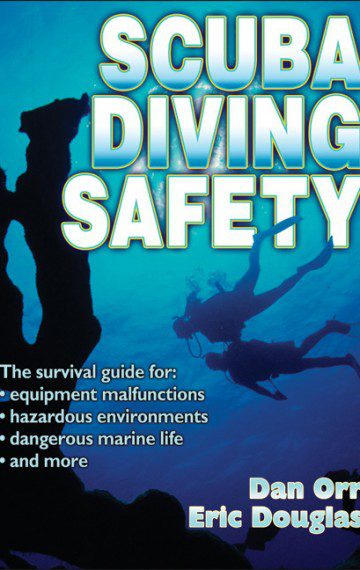The beautiful locales, exotic plant and sea life, and relaxing environs of dive locations are even more peaceful when you are armed with the expertise and skill to stay safe in any situation. With self-rescues, buddy rescues, open-water resuscitation, and towing techniques, Scuba Diving Safety will become your most valuable diving companion. Covering a full range of underwater environments, as well as dangerous marine life, entanglements, and equipment failures, this vital resource is an essential reference for every underwater enthusiast. Do not rely on someone else—or chance—to keep you safe. Let Scuba Diving Safety help you prepare for the unexpected and provide the confidence to enjoy your underwater adventures to the fullest.
Buy it now from Amazon! or Go to the Bookstore and browse all of Eric’s books.
Eric Douglas was the Director of Education for Divers Alert Network (DAN) from 2000 to 2011 and Dan Orr was the President of DAN until 2013. Eric is currently the Lessons for Life columnist for Scuba Diving Magazine.
Reviews
-
“This clear and concise reference is the most up-to-date source of information on the market. Divers should never leave home without a copy of Scuba Diving Safety in their dive bag.” — Alex Brylske, Senior Editor, Dive Training magazine
- I am so glad you placed so much emphasis on rescue training. I do a lot of the Scuba BSA program and it is interesting to talk to Boy Scouts about rescue with respects to Lifesaving merit badge. I ask them what is the greatest save that can be made. After several answers they finally see that the greatest save is the one you never had to make because, to quote Barney Fife, “Ya nip it in the bud”. I am a firm believer that rescue training prepares a diver to recognize and interupt the sequence of events to prevent the need for a save.– Lindsay Peterson, Land Shark Divers Hotel
- It does say on the cover that it is the survival guide – it really is. I read quite a few rescue diver manuals, but this completes it. From the planning to the equipment to the environment to the first aid, everything is technically covered. There are some sections that provide some tips on diving skills, and dive professionals should pay attentions to them as those little things can save a lot of your time and your students’ in the class while you actually are passing important dive safety tips down to them. Overall, I’d recommend this book to all divers as this is easy to read comparing to other dive safety books out there that make my head scratch, but I’d highly recommend to all rescue-level divers that want to extend their knowledge in overall dive safety, and instructors should definitely use this book as a reference and addition to your dive safety related courses and encourage your students to obtain a copy. They say that the knowledge is a power, but it really is. — Kei Shimada, Dive Instructor
